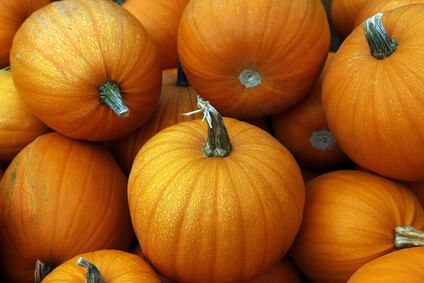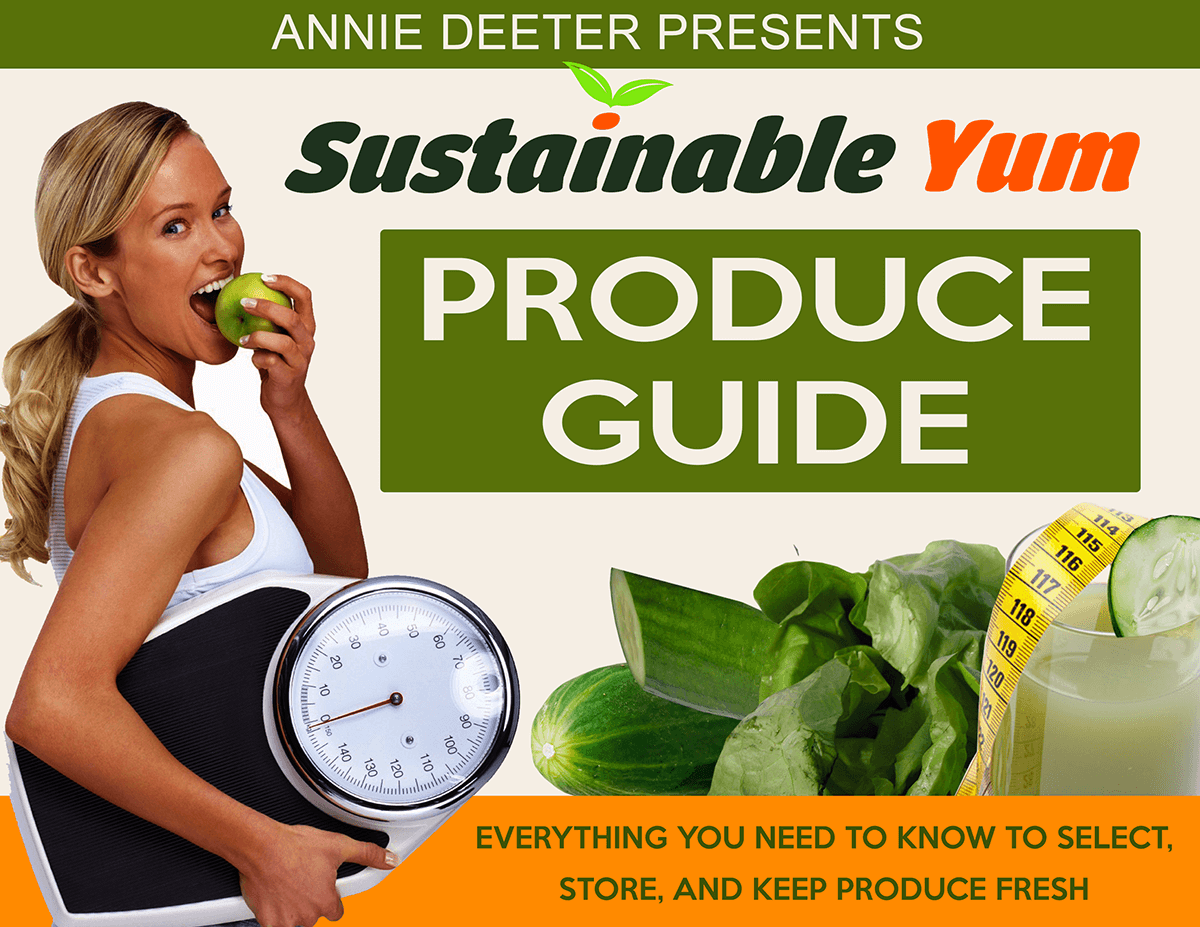Fall is all about the color and as the leaves turn to brilliant hues of yellow, orange and red, the pumpkins glow their own brilliant orange across their dry and yellowed fields.
That brilliant orange is not just great to look at. It’s also a sign of the rich goodness of pumpkin in the diet. You’ve probably noticed that the other place that brilliant orange appears is in carrots – whose name ties to the carotenoids – as in beta carotene and others – of which these brilliant orange fruits and vegetables are composed.
Pumpkins are wonderfully nutritious, filling and flavorful and are so versatile that there is no excuse not to enjoy them, particularly in their season when they are abundant and inexpensive.
Steamed or Baked, Breads and Muffins, Soups or… Pasta?
Pumpkin is delicious steamed or baked and dressed with a little fresh pastured butter and salt and pepper. The butter will help your body take up those all important carotenoids, so don’t skip it!
Pumpkin also offers a great way to add some healing spices to your meal, just sprinkle a little cassia cinnamon, a pinch of nutmeg and a squirt of orange juice and mash for a delicious side dish.
Use it to make a thick hearty soup with ginger and nutmeg to drive out the chill and damp of cold fall nights. Or, serve it up in baked muffins, breads or breakfast cereals for a luscious warm start to your day. Pumpkin bread is an absolutely awesome treat with a little cream cheese and homemade cranberry sauce or apple butter on top – the perfect pick-me up.
Perhaps the first time I really appreciated the versatility and goodness of pumpkin was at a fancy Italian restaurant on a cold evening in November nearly twenty years ago. They offered pumpkin ravioli on the menu, and being naturally curious, and a major fan of pumpkin, of course I had to try it. It was so remarkable that I still remember it, which is saying something for a meal that happened nearly two decades ago!
Pumpkins offer as wide a variety of health benefits as they do ways to enjoy them. Packed with fiber, vitamin C, and those aforementioned beta carotenes, they also offer a great source of alpha carotenoids, as well as lutein, zeaxanthin, and beta-cryptoxanthin. In fact, recent research suggests pumpkins and other winter squash may be the highest source of the health supporting carotenoids in many modern diets.
A one cup serving of steamed pumpkin provides more than half the daily requirement for Vitamin A, approximately one quarter of the vitamin C, and about twenty percent of the fiber, manganese, and vitamin B6. It is high in copper, potassium, folate, vitamin K, Pantothenic Acid (vitamin B5), and even delivers Omega 3 fats. That’s a lot of bang for your buck when it comes to good nutrition from an inexpensive and seasonal food crop that also delivers a lot of food for each fruit.
The Excellent Reason to Keep Your Pumpkin Consumption Organic
Speaking of expenses, however, there is something important to know about pumpkins and all winter squash varieties; aside from the fact that organic means higher nutrition and lower pesticide exposure. Winter squash of all kinds are excellent at removing toxins from contaminated soils. That means they are known as soil remediation plants, and are used for this purpose. (A side note, just because it’s a good thing to know, so are carrots!) Winter squash are especially effective at taking up toxins like pyrene and other hydro-carbons known as ‘PAHs’. PAHs are polycyclic aromatic hydrocarbons, and are toxic to humans. Well, toxic to a lot more than humans, but we’re talking about food here, and we definitely do not want them in your food. Unfortunately, they are also a very common pollutant – being a form of residue from fossil fuel spills and/or the burning of coal, fossil fuels, and other combustible carbons. Did I mention they are very common pollutants?
In general, different carbons and hydro-carbons produce different PAHs, but none of them are desirable in your dinner. So buying organic is a real consideration when it comes to your pumpkins and winter squash purchases. Luckily, these crops are widely available from local farmers markets and specialty produce farms. You can find great prices for organic winter squash and pumpkins at your local farmers market.
Store Your Pumpkins and Other Winter Squash Varieties
Pumpkins and winter squash store well – from one to six months depending on the variety. Just keep them in a cool (50° to 60°), dry place out of direct light. We often store ours in an old wardrobe kept in the garage where the temperature stays just slightly cooler than the indoor house temperature most of the winter. Just be sure to check them for any spoilage or mold, and start with heavy, unblemished fruits.
The dull skinned squashes last longer than the shiny skinned fruits, with acorn, hubbard and butternut keeping the longest of all of them. Pumpkins stored in this manner can easily last from harvest to Thanksgiving and Christmas with some varieties keeping well into the new year.
Don’t Forget the seeds!
Pumpkin seeds are one of nature’s real miracle foods – delivering enough magnesium to provide more than half a full day’s supply in just a quarter of a cup of seeds. They are loaded with zinc, manganese, phosphorous, copper and iron. In addition to providing powerful antioxidant support, pumpkin seeds also have anti-microbial properties, helping to protect our bodies from pathogens.
In short, pumpkin seeds are a veritable mineral infusion and provide loads of additional benefits including helping to regulate insulin levels, and prevent infection. They also provide important nutrients and proteins helping our bodies to generate DNA and RNA, which is how our cells communicate and produce the proteins and genes to support our good health.
Pumpkin seeds are best eaten raw, soaked or sprouted to gain the most nutritional benefit and can be gently toasted or dehydrated after soaking for a delicious nutty, chewy snack. They don’t need refrigeration, so they’re easy to pack as a movable snack and they are terrific added to salads or ground up and used as toppings on everything from breakfast cereals to yogurts or cut up fruits.
Or the Other Winter Squash Varieties
With all these benefits, it’s not such a big mystery why pumpkins are considered a super food, is it? But don’t forget all the other wonderful winter squash varieties that are equally nutritious and delicious: buttercup, butternut, acorn, arikara (the heirloom of the C. Maxima species, cultivated by the Arikara tribes of the Dakotas prior to colonization), hubbard, turban, delicata, banana, and spaghetti squashes, just to name a few, are all excellent for any number of healthy and tasty recipe and meal variations as well. In short, the winter squashes are all superb nutritionally, and offer great value and economy for any food budget.
Resources:
Pumpkin Seeds
http://www.whfoods.com/genpage.php?tname=foodspice&dbid=82
Dr. Mercola on Pumpkin Seeds
http://articles.mercola.com/sites/articles/archive/2013/09/30/pumpkin-seed-benefits.aspx
Winter Squash
http://www.whfoods.com/genpage.php?tname=foodspice&dbid=63





Leave A Comment